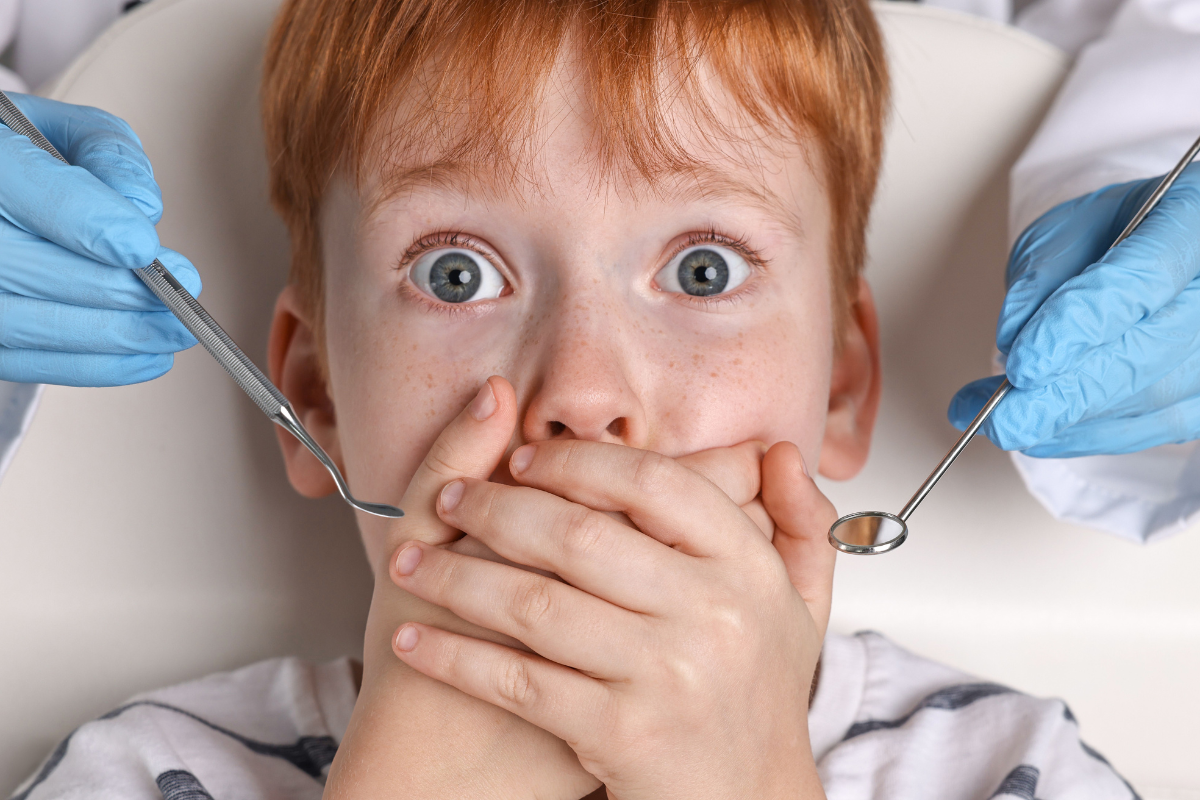Tips for Handling Dental Emergencies Until You Reach a Dentist in Toronto

Recognizing Common Dental Emergencies
Signs of Severe Toothache
A severe toothache can be a sign of a serious dental issue that requires immediate attention. A key indicator is a persistent, throbbing pain that doesn't subside with over-the-counter pain relief. Other symptoms may include swelling around the tooth, fever, and a bad taste in the mouth.
Identifying a Broken Tooth
A broken tooth can range from a minor chip to a severe fracture. If you experience sharp pain when biting down, visible cracks, or missing pieces of the tooth, you likely have a broken tooth. It's crucial to seek dental care promptly to prevent further damage or infection.
When to Worry About Bleeding Gums
Occasional bleeding gums can be caused by brushing too hard or flossing, but persistent or severe bleeding may indicate a more serious condition like gum disease. If your gums bleed frequently, are swollen, or you notice pus, it's time to consult a dentist immediately.
Remember, the key to handling a dental emergency is seeking professional help as soon as possible. Taking swift action can help preserve oral health and reduce the risk of complications.
Immediate Steps to Take During a Dental Emergency
Managing Pain and Swelling
Staying calm is crucial in a dental emergency. Panicking can make it more difficult to address the situation effectively. Contact your dentist as soon as possible, even if it’s after hours. Many dental offices have emergency contact information and can provide guidance or schedule an emergency appointment.
Preserving a Knocked-Out Tooth
If a tooth gets knocked out, handle it carefully by the crown (the part visible in the mouth) and avoid touching the root. If it's dirty, rinse it gently with water, but do not scrub or remove any attached tissue fragments. If possible, try to place the tooth back in its socket. If not, keep it moist in a milk container or a tooth-preservation product.
Handling a Chipped or Broken Tooth
Rinse your mouth with warm water for a chipped or broken tooth to clean the area. Apply a cold compress to the outside of your mouth, cheek, or lip near the broken/chipped tooth to keep any swelling down and relieve pain. Save any pieces of the tooth, if possible, and bring them to the dentist.
Remember, the key to handling a dental emergency is seeking professional help as soon as possible. If your regular dentist is unavailable, consider visiting an emergency dental clinic or the nearest emergency room for immediate care. Taking swift action can help preserve oral health and reduce the risk of complications.
Finding an Emergency Dentist in Toronto
Factors to Consider
When searching for an emergency dentist in Toronto, consider their availability, expertise in handling emergencies, and the range of services they offer. Identifying a reliable emergency dentist can be beneficial if unexpected dental issues arise.
How to Contact an Emergency Dentist
To contact an emergency dentist in Toronto, you can:
- Call their office directly.
- Visit their website for contact information.
- Use online directories to find emergency dental services.
Availability and Response Time
Emergency dentists in Toronto often offer extended hours and weekend services to accommodate urgent dental needs. Quick response times are crucial for effective treatment, so choose a dentist known for their promptness.
Having access to a reliable dentist in Toronto provides peace of mind. In times of dental crises, knowing you have a trusted professional to turn to can alleviate stress and anxiety.
Home Remedies for Temporary Relief
Over-the-Counter Pain Relief
You can take over-the-counter medications such as acetaminophen (Tylenol) or ibuprofen (Advil) for immediate pain relief. Always follow your doctor's advice and read the directions on the bottle before taking any pain medication. Avoid taking aspirin, as it is an anticoagulant and may worsen bleeding if surgery is needed. Make a note of what medication you took, how much, and when you took it.
Cold Compress Application
Applying a cold compress or ice pack to the affected area can help alleviate pain and reduce swelling. Press the cold compress against your cheek or mouth for 10-15 minutes. This will help numb the area and provide temporary relief.
Salt Water Rinse
Rinsing your mouth with a saltwater solution can help reduce inflammation and clean the affected area. Mix a teaspoon of salt in warm water and rinse your mouth thoroughly. This simple remedy can temporarily relieve and help prevent worse oral health problems.
In a dental emergency, these home remedies can offer temporary relief until you can reach a dentist. However, they are not permanent solutions, and professional dental care is essential for proper treatment.
Preventing Dental Emergencies
Regular Dental Check-Ups
Regular dental check-ups are essential for maintaining oral health and preventing emergencies. Routine visits help identify potential issues before they become serious problems. Schedule appointments at least twice a year.
Using Protective Gear During Sports
Wearing protective gear, such as mouthguards, during sports activities can significantly reduce the risk of dental injuries. Custom-fitted mouthguards offer the best protection.
Avoiding Hard Foods and Objects
Avoid chewing on hard foods and objects like ice, popcorn kernels, and pens. These can cause teeth to crack or chip, leading to potential emergencies.
Being proactive about dental care can prevent pain and costly treatments in the future. Simple preventive measures can make a significant difference in maintaining oral health.
What to Expect During an Emergency Dental Visit
Initial Assessment and Diagnosis
Upon arrival, the dentist will conduct an initial assessment to understand the severity of your condition. This may include X-rays and a physical examination to pinpoint the exact issue. The dentist will ask about your symptoms, medical history, and how the injury occurred.
Treatment Options
Based on the diagnosis, the dentist will discuss various treatment options. These may include:
- Pain Management: Prescribing medications to alleviate pain.
- Temporary Fixes: Apply temporary fillings or crowns.
- Permanent Solutions: Recommending procedures like root canals, extractions, or permanent fillings.
Follow-Up Care
Follow-up care is crucial for recovery after the initial treatment. The dentist will provide instructions on caring for your injury at home and may schedule additional visits to monitor your progress.
Tip: Always follow your dentist's aftercare instructions to ensure a smooth and quick recovery.
Importance of Having an Emergency Dental Plan
Benefits of Being Prepared
Preparing for a dental emergency can be the difference between saving or losing a tooth. Access to emergency dental care allows you to feel confident and prepared. Although we hope our clients will never experience a dental emergency, access to a clinic accepting immediate appointments can give you peace of mind and ensure you and your family are safe.
Creating a Dental Emergency Kit
Creating a dental emergency kit is a proactive step to handle unexpected dental issues. Here are some essential items to include:
- Gauze pads
- A small container with a lid
- Pain relievers (e.g., ibuprofen)
- Dental mirror
- Cotton balls
- Temporary dental filling material
Emergency Contact Information
Having emergency contact information readily available is crucial. Ensure you have the contact details of your regular dentist and the nearest emergency dental clinic. Immediate care is the number one priority when experiencing a dental emergency.
Dealing with a dental emergency can be stressful, and having access to a reliable
emergency dentist in Toronto is crucial for prompt and effective care. Knowing where to turn for fast and reliable dental care is essential, whether it’s sudden tooth pain, a broken tooth, or another urgent dental issue.
Frequently Asked Questions
What should I do if I have a severe toothache?
Contact your dentist as soon as possible to explain the situation and schedule an emergency appointment.
How can I manage pain and swelling before seeing a dentist?
Over-the-counter pain relief, cold compress application, and saltwater rinses can provide temporary relief until you reach a dentist.
What steps should I take if I knock out a tooth?
Preserve the tooth by keeping it moist. Place it in a milk or saline solution container and seek immediate dental care.
What are the common reasons for seeking emergency dental care?
Common reasons include severe toothache or pain, a knocked-out or dislodged tooth, chipped or broken teeth, a badly bitten lip or tongue, a lost dental restoration, injured and persistently bleeding gums, and something stuck between teeth that cannot be removed with dental floss.
What should I expect during an emergency dental visit?
During an emergency dental visit, you can expect an initial assessment and diagnosis, treatment options, and follow-up care to ensure proper recovery.




